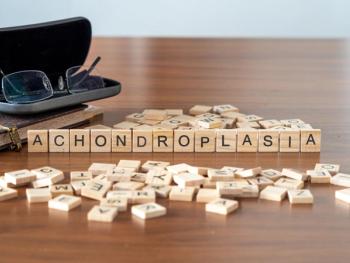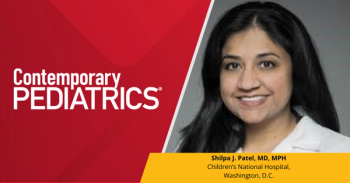
Belimumab autoinjector approved for systemic lupus erythematosus patients 5 years and older
Prior to the federal agency's decision, children aged 5 years and older could only receive belimumab through an intravenous (IV) formulation.
GSK's 200 mg belimumab (Benlysta) via subcutaneous administration has been approved by the FDA for patients aged 5 years and older with active systemic lupus erythematosus (SLE) who receive standard therapy.1
The B-lymphocyte stimulator (BLyS)-specific inhibiting monoclonal antibody will provide pediatric patients the possibility to receive the treatment at home, according to a press release from GSK.1
“Lupus tends to be more aggressive and affect children more severely than adults, with those diagnosed in childhood having higher rates of organ damage," Mary T. Crimmings said in a statement. Crimmings is interim CEO and senior vice president for Marketing and Communications at the Lupus Foundation of America.1
"Going to the doctor’s office once every [4] weeks can be a logistical hurdle for some children and their caregivers, so having the option to administer [belimumab] in the comfort of their home provides much-needed flexibility," Crimmings added.1
The chronic, multi-organ inflammatory disease is caused when the immune system attacks its own tissues. SLE is the most common form of lupus, which includes symptoms such as painful, swollen joints, extreme fatigue, unexplained fever, skin rashes, and organ damage. In the United States, there are between 5000 and 10,000 children with SLE. Lupus is most common in those aged 15 years or older.1,2
Children with lupus, compared to adults, are more likely to experience problems with vital organs such as the kidney, which can worsen the survival rate of patients with SLE. Some cases can result in kidney failure.1,2
Prior to the federal agency's decision, children aged 5 years and older could only receive belimumab through an intravenous (IV) formulation, to be administered by health care professionals as a weight-based dose of 10 mg / kg. The administration was done via a 1-hour infusion in a hospital or clinic setting every 4 weeks (after an initial loading phase given on days 0, 14 and 28), stated GSK.1
If the health care provider deems at-home delivery is appropriate, instructions will be provided to the patients' caregiver, allowing delivery via an autoinjector once per week for children who weight 40 kg or more. Or, once every 2 weeks for children who weight 15 kg to less than 40 kg.1
According to GSK, the 200 mg autoinjector of belimumab will be "available immediately for caregivers of pediatric patients [5] years of age and older with active SLE who are receiving standard therapy."1
Belimumab is contraindicated in patients with previous anaphylaxis with belimumab.1
References:
- FDA approves Benlysta (belimumab) autoinjector for children with systemic lupus erythematosus. GSK. Press release. May 20, 2024. Accessed May 31, 2024. https://us.gsk.com/en-us/media/press-releases/fda-approves-benlysta-belimumab-autoinjector-for-children-with-systemic-lupus-erythematosus/
- Mehta, J. Pediatric lupus. Children's Hospital of Philadelphia. Accessed May 31, 2024. https://www.chop.edu/conditions-diseases/pediatric-lupus
Newsletter
Access practical, evidence-based guidance to support better care for our youngest patients. Join our email list for the latest clinical updates.








